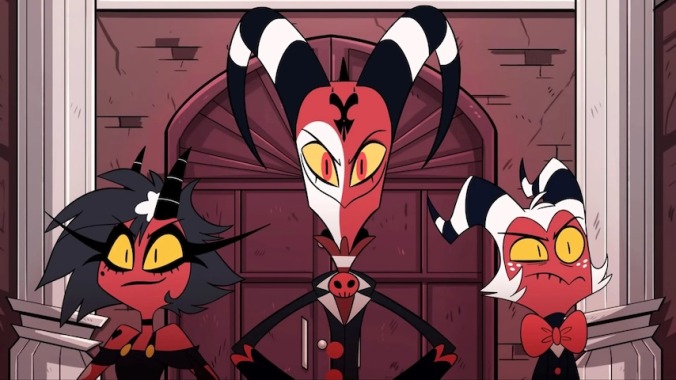ICYMI: Helluva Boss Is the Grittier (but Still Hilarious) Companion to Hazbin Hotel
Photo Courtesy of YouTube
Editor’s Note: Welcome to ICYMI! With so much TV constantly premiering, we’re highlighting some of the best shows you may have missed in the deluge of content from throughout the year. Join the Paste writers as we celebrate our underrated faves, the blink-and-you-missed-it series, and the perfect binges you need to make sure you see.

Even with the uptake in adult animation in recent years, Hazbin Hotel was an outrageous and wonderful shock to the system when it premiered. Vivienne Medrano is a self-made creative who launched the Hazbin Hotel pilot on her YouTube channel @Vivziepop in 2019. The story of Lucifer’s (Jeremy Jordan) daughter Charlie (Erika Henningsen) attempting to rehabilitate Hell’s sinners was picked up by A24 and went through a long production before premiering on Prime Video in January 2024. But in between, Medrano debuted another hellishly creative series, featuring some denizens of Hell who were originally envisioned as one-off side characters in Hazbin Hotel but spiraled into their own deranged story.
Now nearing the end of its second season on YouTube, Helluva Boss follows Blitzø (Brandon Rogers), who runs a company of Imp assassins in Hell targeting people in the world of the living. What Charlie does has big-picture implications for all of Hell, while Blitzø’s actions are grounded in a personal narrative. Blitzø works with a regular trio of employees: Moxxie (Richard Steven Horvitz) is initially presented as the sensitive one, making it so satisfying to realize how ruthless he can be. Moxxie’s wife Millie (Vivian Nixon) is perfectly chipper one minute and a vicious killer the next, all while navigating married life with Moxxie past the honeymoon phase. Loona (Erica Lindbeck) is Blitzø’s Hellhound/adoptive daughter (and the worst receptionist ever) with a surprisingly soft side. Interestingly, all of these characters’ two-faced personas are imperative to the show’s tendency to be completely grisly or oddly sweet.
Helluva Boss’ humor is vulgar, but unapologetic, with fast, tight timing, while the artistic style is just a bit grittier than Hazbin Hotel, with some heavy metal elements. The two shows are not duplicates, but rather complement each other, showing different perspectives of the setting. Hazbin Hotel also committed to being a musical immediately, while Helluva Boss seems to have settled on one song per episode, based on the evolution of Season 1. But while Hazbin Hotel has its fair share of dark moments, Helluva Boss tells an overall darker story. The pilot episode kicks things off with a shamefully funny montage of the main characters murdering humans and shouting at each other at the office in a wild summary of their daily lives.
The underdog narrative is harder to discern when the series has a much more episodic, adventure-of-the-week structure. However, it is satisfying to see the overall story emerge throughout Helluva Boss, primarily about classism and the strained power balances in relationships between people from different socio-economic backgrounds. The Imps are the working class of Hell, and it gradually becomes clear that Blitzø’s business endeavor is what many would consider a laughable dream. Most other Imps are in the service industry, appearing in the background as servers and household staff.
-

-

-

-

-

-

-

-

-

-

-

-

-

-

-

-

-

-

-

-

-

-

-

-

-

-

-

-

-

-

-

-

-

-

-

-

-

-

-

-








































